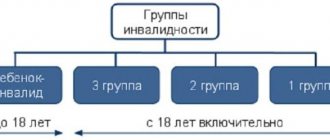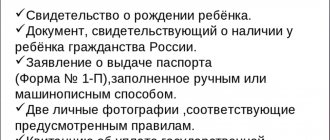Timely payment of taxes is the responsibility of every legal entity and individual conducting business activities. A fine for non-payment of taxes is a punishment for failure to fulfill the obligations established by the Tax Code of the Russian Federation for taxpayers. Failure to fulfill this obligation is an offense which may be punishable by:
- criminal liability;
- administrative punishment;
- tax liability.
The type of liability provided in 2021 for non-payment of taxes depends on the type of violation, as well as the type of entity that committed such a violation. However, in all cases, a person can bear only one type of liability, for example, if tax or administrative is imposed, criminal liability is no longer assigned. Also, being held liable for non-payment of taxes does not relieve an individual or legal entity from the need to pay off its tax debt.
Tax fines are the most common form of penalty that applies to individuals or legal entities.
What is the liability for non-payment of taxes?
The Tax Code of the Russian Federation states that for prolonged non-payment of taxes, a citizen may face:
- administrative;
- tax;
- criminal liability.
Responsibility measures are enshrined in Chapter 25 of the Tax Code of the Russian Federation. In addition, the deadlines for the transfer of fiscal fees and insurance contributions are established for each type of payment. If the taxpayer violates deadlines or does not pay to the budget, he will be issued penalties and a penalty.
Administrative
Violators are subject to administrative liability for tax evasion under the Code of Administrative Offenses of the Russian Federation. An administrative fine is imposed on responsible officials - the manager, the chief accountant.
Usually, fines are issued according to the administrative code. But there is a more serious punishment - disqualification of the leader (Article 3.11 of the Code of Administrative Offenses of the Russian Federation). If the regulatory authorities disqualify the director, you will have to appoint a new manager, change the statutory documents and make changes to the Unified State Register of Legal Entities.
IMPORTANT!
After the statute of limitations (one year) has expired, administrative liability for non-payment of taxes by a legal entity and other violations of tax legislation is not assigned. For violations of laws and accounting regulations, the statute of limitations is longer—two years.
An example of calculating penalties under the simplified tax system for individual entrepreneurs
IP Bystrov A.V. made an advance payment for the 1st quarter - 6,000 rubles, but forgot to make payments for the 2nd and 3rd quarters (4,500 rubles and 3,700 rubles, respectively). But he paid the tax on time for the year in the amount of 14,200 rubles and did it on February 20. Question: what amount of penalties will he be charged?
Let's calculate the number of days of delay for each unpaid advance payment. Payment for the 2nd quarter: from July 26 to February 20 = 6 days (July) + 31 (August) + 30 (September) + 31 (October) + 30 (November) + 31 (December) + 31 (January) + 20 ( February) = 210 days overdue. Payment for the 3rd quarter: from October 26 to February 20 = 118 days overdue.
Now let's calculate the size of the penalties using the formula given above. Let us assume that the key rate of the Central Bank of the Russian Federation in the current period has always been equal to 6.5% per annum.
Penalties for non-payment for the 2nd quarter = 1/300 × 6.5% × 4,500 × 210 = 204.75 rubles. Penalties for non-payment for the 3rd quarter = 1/300 × 6.5% × 3,700 × 118 = 94.6 rubles.
In total, IP Bystrov must pay 204.75 + 94.6 = 299 rubles 35 kopecks.
Tax
The statute of limitations for tax violations is three years. Delay in payment or non-payment of tax in the Russian Federation requires a fine in the amount of 1/300 of the Central Bank refinancing rate for each day of delay (for individual entrepreneurs and individuals). Legal entities have a different scheme: for the first 30 days they will pay 1/300 of the refinancing rate, and from 31 days - 1/150 for each day of delay (Article 75 of the Tax Code of the Russian Federation).
IMPORTANT!
If a taxpayer filed a return on time and indicated the amount to be paid, but did not transfer contributions to the budget, he will be charged not a fine, but a penalty.
For example, a fine for non-payment of taxes by an individual on property is assessed after December 1 of the year following the accounting year (Article 409 of the Tax Code of the Russian Federation). If the owner does not pay the amount requested by the Federal Tax Service, he will be charged a penalty in the amount of 1/300 for each day of delay.
Employers have additional responsibilities and penalties. If an organization does not withhold personal income tax or withholds it but does not transfer it to the budget, it will be charged not only a fine, but also a penalty (Article 123 of the Tax Code of the Russian Federation). The amount of the fine is from 20% to 40% of the amount of non-withheld income tax (Article 122 of the Tax Code of the Russian Federation). The same rule applies to other obligatory fiscal payments and insurance contributions.
Extenuating circumstances
If you committed a violation not intentionally, but due to circumstances, report them to the tax authorities. You have a chance to reduce your fine. You can refer to family problems, an unstable financial situation, illness - the main thing is to have supporting documents. Also, the tax authority or court in some cases reduces the amount of the penalty. For example:
- the taxpayer admitted guilt and corrected the errors;
- there was a slight delay;
- minor damage to the budget was caused;
- the violation was committed for the first time.
Detailed information about circumstances mitigating tax liability is available on the Federal Tax Service website.
In addition, Article 111 of the Tax Code of the Russian Federation lists situations that exclude the guilt of the offender: natural disasters, serious illness and other significant events. Sometimes there is no need to prove innocence (for example, a hurricane knocked out power to a city - this was reported in the media). Sometimes it is necessary to have supporting documents (an extract from hospital treatment, a certificate of fire). We talked in detail about how you can reduce or cancel fines from the tax office in the article.
Elba will remind you to pay taxes and submit reports.
Enjoy all the features of Elba for 30 days free of charge. Try it
Criminal
The most serious offense is criminal. In Art. 198-199 of the Criminal Code of the Russian Federation indicates the amount of criminal liability for non-payment of taxes - for acts on a large scale from 2,700,000 rubles for 3 financial years in a row. Acts on an especially large scale start from 13,500,000 rubles for 3 financial years in a row.
The Criminal Code of the Russian Federation regulates the procedure for compliance with the norms and rules of current legislation. If a taxpayer deliberately does not pay or evades transferring fees, he faces punishment under the Criminal Code of the Russian Federation (clauses 3, 8 of the resolution of the plenum of the Supreme Court of the Russian Federation No. 64 of December 28, 2006).
They will also be punished for fraud with tax transactions - under Art. 159 of the Criminal Code of the Russian Federation. This also takes into account the forgery of documents for VAT reimbursement. The penalty for fraud is a fine of 120,000 rubles or imprisonment for up to 2 years. If the manager and chief accountant are recognized as an organized group, they will be imprisoned for up to 10 years with a mandatory penalty of up to 1,000,000 rubles.
IMPORTANT!
Understatement of the tax base due to mechanical or computational errors in the declaration is not grounds for criminal penalties.
How do errors in a payment order affect the correctness of taxes?
If a business entity has submitted a payment order to the bank to fully repay the debt to the budget, then if there is the required amount of funds in the current account, its obligations as a taxpayer are considered fulfilled (Article 45 of the Tax Code of the Russian Federation).
At the same time, an incorrectly completed payment can have negative consequences of varying severity, depending on what kind of mistake was made.
For example, an incorrectly indicated payer status is not a basis for declaring tax unpaid. This is evidenced by numerous judicial practices (see, for example, the resolution of the Federal Antimonopoly Service of the North-Western District dated September 4, 2006 in case No. A26-2235/2006-29).
The courts do not recognize the incorrectly indicated BCC as a reason for non-crediting of payment, since Art. 45 of the Tax Code of the Russian Federation does not contain such a requirement.
However, in order to avoid possible disputes with inspectors, you should still pay increased attention to the details in payment orders.
The obligation to repay the debt is considered unfulfilled if the treasury account and the name of the recipient bank are incorrectly indicated in the payments (subclause 4, clause 4, article 45 of the Tax Code of the Russian Federation).
How to clarify a tax payment in the event of an error in a payment order is explained in detail in the ready-made solution from ConsultantPlus. Trial access to the system can be obtained for free.
Who will be punished and if there is any debt?
Typically, punishment for non-payment of taxes is imposed on organizations (legal entities), but in certain situations, owners and responsible officials are punished. The inspectorate conducts an investigation, identifies the guilty employees and issues targeted penalties (letter of the Federal Tax Service No. ED-18-15 / [email protected] dated 09/06/2018).
We list all types of fines for non-payment of tax payments in the table:
| Violation | Type of liability and penalty for late payment of taxes and contributions |
| Incorrect information was provided about the income of employees from whom tax was withheld | For each document with a violation you will have to pay 500 rubles (Article 126.1 of the Tax Code of the Russian Federation) |
| Unintentional failure to pay taxes and insurance premiums on time | 20% of the amount of arrears plus penalties (Part 1 of Article 122 of the Tax Code of the Russian Federation) |
| Deliberate non-payment of mandatory payments | 40% of the amount of arrears plus penalties (Part 3 of Article 122 of the Tax Code of the Russian Federation) |
| Non-payment due to violations of accounting procedures | The first is from 5,000 to 10,000 rubles per official. Repeated - from 10,000 to 20,000 rubles or disqualification for 1 or 2 years (Article 15.11 of the Code of Administrative Offenses of the Russian Federation) |
| An act committed by an individual entrepreneur on a large scale | Criminal punishment under Art. 198 of the Criminal Code of the Russian Federation:
|
| An act committed by a company on a large scale | Criminal punishment under Art. 199 of the Criminal Code of the Russian Federation:
|
| An act committed by an individual entrepreneur on an especially large scale | Criminal punishment under Art. 198 of the Criminal Code of the Russian Federation:
|
| An act committed by a company on an especially large scale | Criminal punishment under Art. 199 of the Criminal Code of the Russian Federation:
|
IMPORTANT!
There are no penalties or fines from the Federal Tax Service for late payment of the fine. The inspectorate sends a request to transfer penalties for violations, but does not set a deadline for payment. Penalties are charged for late tax payments and tax contributions.
Violations of accounting rules
A number of violations that lead to sanctions under Art. are directly related to income tax. 120 Tax Code of the Russian Federation. This refers to gross violations of the procedure for accounting for expenses, income and taxable items. These include (clause 3 of article 120 of the Tax Code of the Russian Federation):
- missing primary;
- lack of tax accounting registers;
- constant (more than one case during the year) errors in recording transactions in tax registers.
Even if there is no distortion of the tax base, the following may be punished:
- for 10,000 rubles. (Clause 1 of Article 120 of the Tax Code of the Russian Federation), if violations were present during one tax period (year);
- for 30,000 rub. (Clause 2 of Article 120 of the Tax Code of the Russian Federation), if they occur over more than one tax period (year).
If such violations lead to an underestimation of the tax base, the fine will be 20% of the underpaid tax - at least 40,000 rubles. (clause 3 of article 120 of the Tax Code of the Russian Federation).









